Five Universities with Exceptional Healthcare Administration Faculty
Healthcare administration encompasses the fields of business, science, and health policy. Professionals in healthcare administration are responsible for the business strategies and goals of healthcare facilities. They work to ensure a high quality of care for patients and proper support for the medical staff.
As one of the fastest growing fields in the United States, healthcare administration is expected to see a considerable increase in demand; by illustration, the Bureau of Labor Statistics (BLS) predicted that openings for medical and health services managers will swell 20 percent between 2016 and 2026, which is much faster than the average projected growth of all professions in the country. The BLS notes that most entry-level professionals in this field have at least a bachelor’s degree and likely a master’s degree as well.
In most graduate-level programs, students can choose to specialize in areas such as long term care administration, health informatics, patient advocacy, and organizational leadership. Many degree programs feature required practicums and internships to prepare students with hands-on experiences in their area of specialization.
Graduates from master’s degree programs in healthcare administration often parlay their educational and practical experience into careers that align with their specialty. Some of those careers include hospital information managers, hospital administrators, clinical managers, nursing home administrators, and human resources managers.
Hospital administrators can obtain certification through a variety of professional associations, such as the American College of Healthcare Executives (ACHE), the American Association of Healthcare Administrative Management (AAHAM), and the Health Care Administrators Association (HCAA).
Faculty members in healthcare administration bring unique value to the field thanks to their multidisciplinary educational and professional backgrounds. The fifteen professors profiled below have demonstrated their expertise in the field of healthcare administration through years of work experience, teaching, and study. Their contributions include groundbreaking research, significant published works, excellence in teaching, leadership in industry organizations, honors, awards, and other professional accolades.
The following list of professors gives prominence to the faculty at five notable universities: Rush University, Trinity University, Tulane University, Baylor University, and Xavier University.
Rush University, College of Health Sciences
Ranked the fifth best healthcare management program by the U.S. News & World Report, Chicago-based Rush University offers a full or part-time master’s degree program in health systems management with a strong emphasis on competency and professional skills development.
Accredited since 1981 by the CAHME, the health systems management master of science aims to prepare individuals for roles in healthcare leadership so that they can transform organizations and deliver high-quality patient care. The program features a teacher-practitioner model of instruction where students learn in a traditional classroom environment as well as in a paid part-time internship. Students are taught by senior executives and administrators hailing from leading healthcare organizations in the United States.
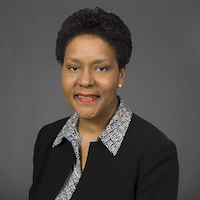
Diane Howard, PhD
Dr. Diane Howard is the director of student development in the Department of Health Systems Management at Rush University. She is also an associate professor and teaches courses in insurance and professionalism.
Dr. Howard has held executive roles in both hospitals and insurance companies. Before going into academia, she was a vice president at Lake Hospital System, U.S. Healthcare, and Aetna. Her research areas include disparities, healthcare access, and insurance. Notably, her dissertation examined the governance structure of for-profit and nonprofit insurance companies, as well as the impact ownership status had on their product offerings.
Dr. Howard holds a doctorate in health policy and management from the University of Illinois at Chicago, a master of public health (MPH) in health policy and management from the University of Pittsburgh, and a bachelor’s degree in psychology from Hampton University.
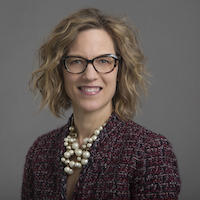
Tricia Johnson, PhD
Dr. Tricia Johnson is a professor and associate chairperson of education and research at the Department of Health Systems Management in the College of Health Sciences. She is also a 2009 Fulbright Scholar to Austria for her research evaluating trends in cross-border and international medical travel at the Vienna University for Economics and Business.
Dr. Johnson’s primary scientific interest is in understanding the economic drivers of healthcare spending. She is considered one of the few human milk economists in the world as a large portion of her research focuses on the economics and cost-effectiveness of human milk feedings to premature infants. She leads several studies that aim to identify cost-effective strategies for improving health outcomes and reducing costs.
Dr. Johnson earned her doctorate and master of science in economics from Arizona State University, her master of arts in hospital and health administration from the University of Iowa, and her bachelor of arts in economics and business administration from Coe College.
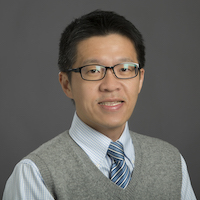
Chien-Ching Li, PhD
Dr. Chien-Ching Li is an assistant professor and health services researcher in the Department of Health Systems Management at Rush University.
Dr. Li’s expertise includes population health research, quantitative studies, and epidemiological research in health services and outcomes. His research centers around cancer prevention and control as well as the behavioral risk factors, health services utilization, and health outcomes in vulnerable populations.
Dr. Li earned his doctorate in health services research from Saint Louis University and his MPH in community health sciences from the University of Illinois at Chicago. He also has a master of science in health administration policy from the National Yang-Ming University and a bachelor of science in public health from Fu Jen Catholic University, both in Taiwan.
Trinity University
The master of healthcare administration program at Trinity University in San Antonio, Texas ranks 13th on the U.S. News & World Report’s list of best healthcare management programs. The program offers two tracks: a 28-month on-campus program with a year-long residency and a 23-month executive program for professionals.
A unique feature of the program is that the faculty is entirely focused on the educational, professional, and career development needs of the master’s degree-seeking students. Since there are no doctoral degrees and the program is not grant-funded, professors are more accessible to work with students outside of regular class hours and help students fully incorporate their classroom and experiential learning.
CAHME-accredited since 1969, Trinity University’s master of healthcare administration program has a vast alumni network and boasts a 100 percent job placement rate after graduation.
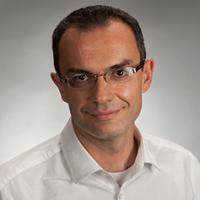
Amer Kaissi, PhD
Dr. Amer Kaissi is a professor of healthcare administration at Trinity University, where he teaches courses in healthcare management, strategic planning, marketing, human resource management, and comparative subjects of the healthcare systems of the United States and France.
Dr. Kaissi’s research areas include diabetes in primary care clinics, strategic planning, retail clinics, quality of care and patient safety, and the application of organizational theories to healthcare settings. He has published his work in numerous administrative and clinical peer-reviewed journals and authored a book titled “Intangibles: The Unexpected Traits of High-Performing Healthcare Leaders.” Outside of his academic achievements, he coaches healthcare executives to improve their strategic planning and guide their career trajectories.
Dr. Kaissi earned his doctoral degree in health services administration, research, and policy from the University of Minnesota, Twin Cities, as well as an MPH in healthcare administration and a bachelor’s degree in environmental health, both from the American University of Beirut. He is also a certified physician executive and holds certifications in professional and executive coaching and emotional intelligence assessment.

Edward Schumacher, PhD
Dr. Edward Schumacher serves as a professor and the chair of the Department of Healthcare Administration at Trinity University. He teaches courses in qualitative methods and information management and economic aspects of healthcare administration.
Dr. Schumacher’s professional area of expertise includes healthcare labor markets, health economics, labor economics, and quantitative methods. He is a member of several professional organizations including the International Health Economics Association and has published his research in many professional journals, including the Journal of Health Economics.
Dr. Schumacher earned his doctorate in economics from Florida State University and his master of arts in applied economics from the University of North Carolina at Greensboro.
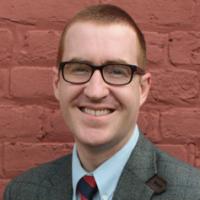
Patrick Shay, PhD
Dr. Patrick Shay is an assistant professor of healthcare administration and urban studies at Trinity University—his alma mater. He teaches courses in health services organization and policy, population health management, and organization theory and behavior.
Dr. Shay’s areas of research and publication include local hospital-based systems (i.e., “clusters”), organization theory in healthcare, post-acute healthcare sector, and healthcare executive compensation. Before obtaining his doctorate and going into academia, he worked as a healthcare administrator for a post-acute healthcare facility in Texas.
Dr. Shay obtained his doctorate in health services organization and research from Virginia Commonwealth University, as well as his master of science in healthcare administration and bachelor of science in business administration from Trinity University.
Tulane University, School of Public Health and Tropical Medicine
Ranked the 13th best healthcare management program in the nation by the U.S. News & World Report, Tulane University’s master of health administration (MHA) program in New Orleans, Louisiana offers students a comprehensive and practical educational framework in public health. The 60-credit program is CAHME-accredited and features a year-long residency so that students can apply their learned management skills and gain valuable practical experience in the field.
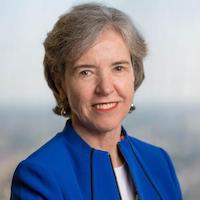
Jane Bertrand, PhD
Dr. Jane Bertrand is a professor in the Department of Global Health Management and Policy at the Tulane School of Public Health and Tropical Medicine, where she holds the Neal A. and Mary Vanselow endowed chair position.
Dr. Bertrand has been at Tulane University since 1979 except for the nine years she spent directing the Center for Communications Programs at the Johns Hopkins Bloomberg School of Public Health. Her research interests include program evaluation, behavioral change, and communication in the areas of international family planning and HIV prevention. She has published extensively and teaches two graduate courses: monitoring for program management in global health and health systems strengthening: international family planning.
Dr. Bertrand earned her doctorate in sociology from the University of Chicago and a master of business administration (MBA) from Tulane University. She also has a bachelor of arts in French from Brown University.

Kevin Callison, PhD
Dr. Kevin Callison is an assistant professor in the Department of Global Health Management and Policy at the Tulane School of Public Health and Tropical Medicine, where he teaches health economics for undergraduates and executive MBA students as well as principles of microeconomics.
His research interests include issues related to healthcare use, health insurance markets, policy evaluation, analyses of health determinants, and substance abuse. He has published extensively in many peer-reviewed healthcare journals and has won several awards for excellence in teaching and research funding.
Dr. Callison earned his doctorate and master’s degrees in economics from the University of Illinois at Chicago and his bachelor of arts in the same subject from Ohio State University.

Mollye Demosthenidy is a clinical associate professor and program director in the Department of Global Health Management and Policy at the Tulane School of Public Health and Tropical Medicine, where she teaches undergraduate and graduate classes in health law and regulation, ethics, health policy, and foundations of healthcare systems.
Her academic research and publishing interests reside in healthcare reform. Before going into academia at Tulane, Demosthenidy was an attorney in New Orleans where she focused on regulatory and transactional issues faced by healthcare providers. Since teaching at Tulane, she has won several teaching awards.
Demosthenidy earned her doctorate of jurisprudence (JD) and master of healthcare administration from Tulane University. She also has a bachelor’s degree from Louisiana State University.
Baylor University, Robbins Institute for Health Policy and Leadership
Baylor University in Waco, Texas is ranked 17th in the country by the U.S. News & World Report for its healthcare management program. The Robbins Institute for Health Policy and Leadership offers a master of business administration (MBA) with a specialization in healthcare administration, which is CAHME-accredited and features a residency program as part of its curriculum.
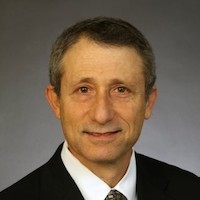
Neil Fleming, PhD
Dr. Neil Fleming is a clinical professor of health services research at the Robbins Institute for Health Policy and Leadership and a clinical professor and director of PhD programs in health services research at the economics department at Baylor University.
Dr. Fleming’s research area involves using experimental and quasi-experimental designs for analyzing the impact of behavioral interventions to improve the quality of healthcare, healthcare innovation and technology, and decision sciences. He teaches courses with a focus on accountable care and population health.
While he does not teach healthcare administration specifically, Dr. Fleming is included on this list for his integral role in related health administration programs at the university. He has extensive professional experience in health services research, mathematics, and sociology and has published his research in the Journal of Clinical Outcomes Management.
Dr. Fleming earned his doctorate and master of arts in sociology from Vanderbilt University and his bachelor of science in mathematics from Bucknell University.

Steve Green, PhD
Dr. Steve Green is the academic director of graduate programs at the Robbins Institute for Health Policy and Leadership, director of the energy commerce certificate program, and a professor of economics. He teaches online classes in microeconomics and economics for managers.
Dr. Green has won several awards in teaching, published numerous articles in peer-reviewed economics journals, and has served as a consultant, department chair, program director, and professor at several universities, including Vanderbilt University. He was also a visiting scholar at the Federal Reserve Bank of Dallas.
Dr. Green earned his doctorate and master’s degrees in economics from Brown University and a bachelor of arts degree in economics from Baylor University.
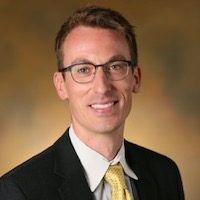
Michael Richards, MD, PhD
Dr. Michael Richards is an associate professor at the Robbins Institute for Health Policy and Leadership and the Department of Economics at Baylor University. He teaches doctorate-level courses in research design and statistics as well as health economics courses in the MBA program.
Dr. Richards’s primary areas of research involve healthcare provider responses to public policies and evolving market environments. He is a member of the American Economic Association and the American Society of Health Economics and is the recipient of several awards and honors for teaching and publishing.
Dr. Richards has a doctorate in health policy economics from Yale University, a medical doctorate (MD) and an MPH, both from the University of Illinois, as well as a bachelor’s degree in biological sciences from the University of Illinois-Chicago.
Xavier University
The master of health services administration program at Xavier University has been ranked as the 23rd best healthcare management program by U.S. News & World Report. The program has been CAHME-accredited since accreditation began in 1968 and features a paid administrative residency, a vast alumni network, and small class sizes. Students can enroll in the full-time program or the executive program depending on their credentials, experience, and goals.
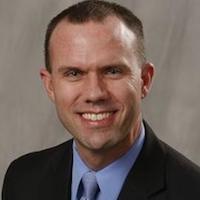
Rick Browne, PhD
Dr. Rick Browne is the director of undergraduate bachelor’s of science in health services administration and an associate professor in the undergraduate and graduate health services administration programs.
He teaches courses in healthcare management, internship preparation, the foundations of healthcare ethics and law, and institution and community analysis. In addition to teaching, Dr. Browne is actively involved in program administration and academic advising in his role as undergraduate program director. He previously directed the Career Services Center at Xavier University and held executive positions in career services and counseling at Miami University. He is the recipient of multiple grants and awards for his service and teaching skills.
Dr. Browne is a licensed psychologist in Ohio. He earned his doctorate in counseling psychology and a master’s in counseling and counselor education from Indiana University. He also has a bachelor’s degree in psychology with a minor in German from DePauw University.
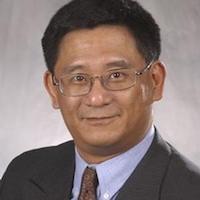
Lin Guo, PhD
Dr. Lin Guo is an associate professor in the Department of Health Services Administration at Xavier University, as well as a faculty advisor, consultant, and volunteer for health services in the community.
Dr. Guo teaches two courses in quantitative methods for healthcare management and quality improvement techniques in healthcare management. His research topics range from healthcare outcomes, community health, and healthcare operations. His studies take place in hospitals and long-term care facilities. He has published and presented his work extensively in peer-reviewed journals and conferences and has authored several books and book chapters.
Dr. Guo earned his doctorate and master’s in industrial engineering at the University of Cincinnati and his bachelor’s degree in mechanical engineering at the South China University of Technology.

France Weaver, PhD
Dr. France Weaver is an assistant professor in the health services administration graduate program at Xavier University. She teaches health economics, health policy, and policy analysis to undergraduate and graduate students.
Dr. Weaver’s expertise lies in policy evaluation, quantitative analyses, long-term care, and aging. She has held research positions at the School of Public and Environmental Affairs at Indiana University in Bloomington and the Agency for Healthcare Research and Quality in Washington D.C. She’s also held teaching positions at Pennsylvania University and the University of Geneva. She has published and presented extensively in scholarly publications and at domestic and international conferences.
Dr. Weaver earned her doctorate in health policy and administration with a concentration in health economics from the University of North Carolina at Chapel Hill. She also has a master of science in economics from the Faculty of Business and Economics of the University of Lausanne in France and a bachelor of science in the same subject from the University of Neuchatel in Switzerland.